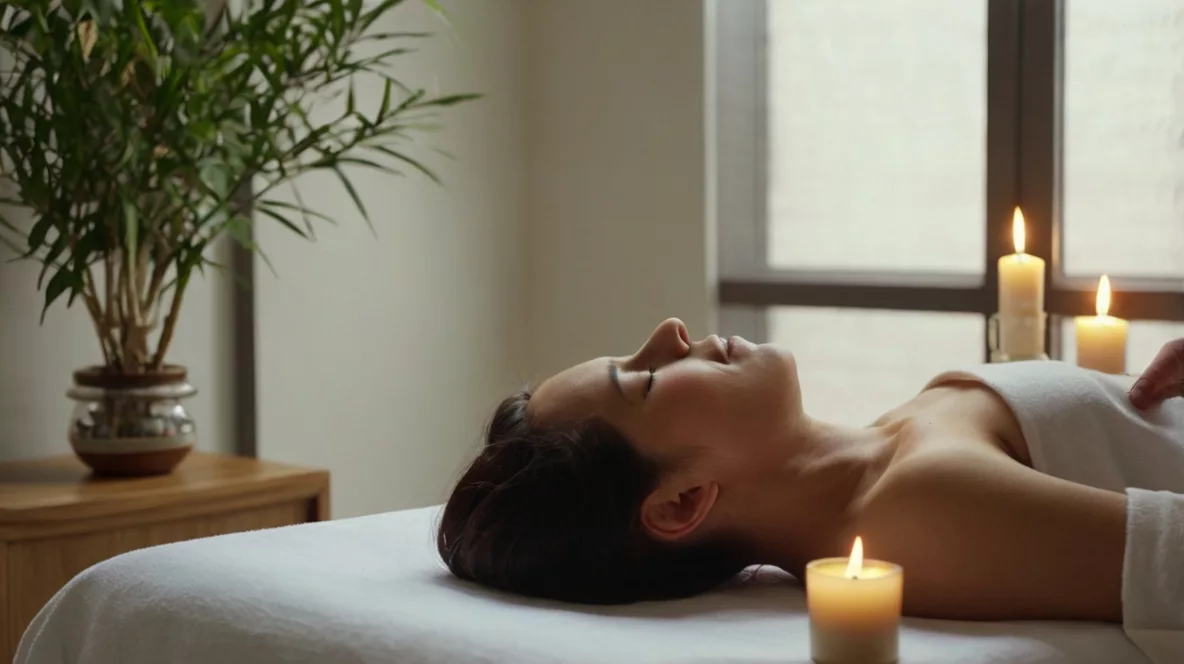Keywords: acupuncture for ms pain relief, ms pain management through complementary therapies, yoga and multiple sclerosis management, massage therapy benefits for ms patients, mindfulness for multiple sclerosis symptoms
Living with multiple sclerosis (MS) can be a daunting challenge, especially when pain becomes a constant companion. MS pain often defies conventional medical approaches, prompting many patients to explore complementary therapies.
Among these, acupuncture for MS pain relief has emerged as a powerful and effective option, offering natural pain relief without the need for heavy reliance on medications. In this article, we delve deep into how acupuncture and MS, and other complementary therapies can transform your MS pain management journey.
Table of Contents
ToggleUnderstanding MS Pain and the Need for Complementary Therapies
MS is a chronic neurological condition where the immune system mistakenly attacks the protective sheath (myelin) covering nerve fibres. This results in disrupted communication between the brain and the rest of the body, often leading to symptoms like fatigue, numbness, muscle spasms, and pain.
Traditional treatments like medications and physiotherapy can only address part of the problem. This gap has led to a growing interest in MS pain management through complementary therapies, such as acupuncture, yoga, massage therapy, and mindfulness.
Complementary therapies don’t just target pain; they also enhance overall well-being. By promoting relaxation, improving circulation, and reducing inflammation, they offer a holistic approach to MS management.
The Role of Acupuncture in Managing MS Pain
1. How Acupuncture Works
Acupuncture is an ancient practice rooted in Traditional Chinese Medicine (TCM). By inserting thin needles into specific points on the body, acupuncture aims to restore balance in the body’s energy flow, or “Qi.” This concept might seem foreign to Western medicine, but clinical studies confirm that acupuncture stimulates the nervous system, releasing endorphins (natural painkillers) and promoting healing.
2. Why Acupuncture is an Effective Treatment for Pain
For MS patients, acupuncture provides targeted relief by addressing symptoms like nerve pain, muscle spasms, and chronic fatigue. It does this by modulating the central nervous system and improving blood circulation to affected areas. Unlike medications, which may cause side effects or dependency, acupuncture offers a drug-free alternative that is gentle and sustainable.
Acupuncture is an effective treatment for pain, offering relief by stimulating specific points on the body to improve circulation, reduce inflammation, and promote natural healing.
Benefits of Complementary Therapies for MS Pain Management
3. Massage Therapy Benefits for MS Patients
Massage therapy is a widely recommended complementary therapy for MS. It improves circulation, reduces muscle tension, and alleviates stress. The gentle manipulation of muscles and tissues can also enhance mobility and flexibility, which are often compromised in MS patients. Combining massage therapy with acupuncture creates a synergistic effect, amplifying the benefits of both treatments.
4. Yoga and Multiple Sclerosis Management
Yoga is another invaluable tool for MS pain management. With its focus on gentle stretches, breathing exercises, and mindfulness, yoga helps improve balance, coordination, and muscle strength. It also encourages relaxation, which reduces stress-induced pain flare-ups. Incorporating yoga with acupuncture can lead to comprehensive symptom relief.
Types of Acupuncture for MS Pain Relief
5. Traditional Acupuncture
Traditional acupuncture focuses on balancing the body’s Qi and treating the root cause of pain. This approach can be particularly beneficial for addressing nerve pain and reducing inflammation, both of which are common in MS.
6. Chinese Scalp Acupuncture
Chinese Scalp Acupuncture is a specialised form of treatment where needles are inserted into specific areas of the scalp to stimulate brain function. This technique is particularly effective for neurological conditions like MS, as it directly targets areas associated with motor and sensory functions.
Enhancing Symptom Management with Mindfulness
7. Mindfulness for Multiple Sclerosis Symptoms
Mindfulness is the practice of being present in the moment and observing thoughts and sensations without judgment. For MS patients, mindfulness can help reduce the emotional toll of chronic pain and fatigue. Combined with acupuncture, mindfulness promotes relaxation and a greater sense of control over one’s symptoms.
How to Integrate Complementary Therapies into Your Routine
8. Combining Alternative Treatments for Maximum Impact
While acupuncture is a cornerstone of natural pain relief, its effectiveness can be amplified by integrating other alternative treatments like yoga, massage, and mindfulness. For instance, starting your week with acupuncture sessions, followed by yoga and mindfulness practices, can create a holistic pain management routine.
Exploring Acupuncture for Multiple Sclerosis
9. Scalp Acupuncture for MS Patients
As mentioned earlier, Scalp Acupuncture for MS Patients is highly effective for addressing mobility issues and muscle weakness. This form of acupuncture aligns closely with the neurological symptoms of MS, making it a preferred choice for patients seeking long-term relief.
10. Evidence Supporting Multiple Sclerosis and Acupuncture
Emerging studies suggest that multiple sclerosis and acupuncture are a promising combination. Patients report improvements in pain levels, mobility, and overall quality of life after consistent acupuncture treatments.
Frequently Asked Questions
Yes, acupuncture can significantly alleviate MS pain. It works by stimulating the release of endorphins and reducing inflammation. Additionally, it improves circulation and modulates nerve function, addressing both acute and chronic pain effectively.
Absolutely. Acupuncture is particularly effective for nerve pain, including the type caused by MS. By targeting specific points, acupuncture reduces pain signals and improves nerve function, providing relief without the side effects of medication.
The best pain relief for MS often involves a combination of approaches. Acupuncture stands out as a leading option due to its ability to provide natural, drug-free relief. Pairing it with massage therapy, yoga, and mindfulness further enhances its benefits.
The pressure points for MS vary based on symptoms but commonly include areas like the lower back (for spinal pain), scalp (for neurological issues), and the hands and feet (for overall relaxation). A skilled acupuncturist can tailor the treatment to your specific needs.
Conclusion
Acupuncture for MS pain relief is a transformative option for those seeking natural and sustainable ways to manage their symptoms. Alongside other complementary therapies like yoga, massage, and mindfulness, it offers a comprehensive approach to improving quality of life for MS patients. Whether you’re exploring Chinese Scalp Acupuncture or integrating mindfulness into your routine, these therapies empower you to take control of your MS journey.
By embracing a holistic approach, you can move closer to a life with less pain and more vitality. With the growing body of evidence supporting multiple sclerosis and acupuncture, there has never been a better time to explore this remarkable treatment. Why not take the first step today?
MS pain management through complementary therapies offers a holistic approach to alleviating discomfort and improving quality of life. Practices like yoga and multiple sclerosis management help enhance flexibility, reduce muscle stiffness, and promote relaxation.
Massage therapy benefits for MS patients include relief from muscle spasms, improved circulation, and reduced stress. Additionally, mindfulness for multiple sclerosis symptoms aids in managing pain, fatigue, and emotional well-being by fostering mental clarity and resilience. Together, these therapies complement traditional treatments, providing a well-rounded strategy for managing MS symptoms effectively.




